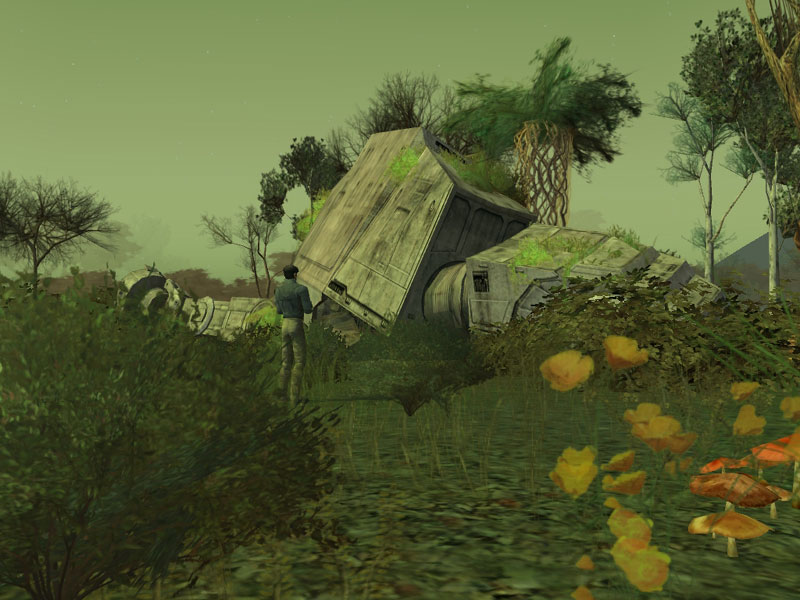Star Wars Galaxies devs discuss why it died
"The most infamous patch in videogame history."

I love a GDC postmortem, with the Fallout and Diablo breakdowns as classic examples of the form. The latest from this year's all-digital GDC put Star Wars Galaxies on the slab so creative director Raph Koster and executive producer Richard Vogel could dissect what went wrong with the infamous MMO. As the opening crawl put it, "This is the story of the worst game to become a classic, and of the most infamous patch in videogame history."
Star Wars: Galaxies may be fondly remembered today for its crafting, player-driven economy, house-customizing, dancing, and focus on relatively ordinary characters, but at launch it was a disaster. As Koster and Vogel tell it, a lot of that came down to how rushed it was, with the developers' request for an extra six months before launch being reduced to a single month of crunch.
During that month, one of the features that was cut was a system for tracking how players could unlock the ability to become a Jedi. The plan was that you'd have to complete a randomized set of activities, though you wouldn't be told what they were. You'd have to explore and learn and try everything until one day you'd suddenly be told you had a connection to the Force. Instead, in the final game you'd need to use five randomly selected skills from the huge number available, though you wouldn't be told that. That was "a very fateful decision made at the end of a 14- or 16-hour crunch day," Koster said.
The result was what the developers wanted—Jedi were rare and mysterious, and most people played other characters. On average, a third of the players on each server ran a shop. It became a game where you made your own fun, ignoring the rudimentary quests to roleplay, run beauty pageants, or make music videos.
That's a hard angle to sell, though. Warriors with laser swords are easier to put on posters. As Koster explained, "We get told by marketing, 'You know what, to do a new marketing push we need Jedi in the game. We want Jedi by Christmas.'" First they added a holocron that told players what to do next to unlock Force powers, and soon those players were abandoning their shops in droves to grind skills and become Jedi. This was no fun it turned out, but completionism is impossible to curb.
Then the New Game Enhancements patch simply added Jedi as a class option, while overhauling and removing many of the existing systems. It alienated the community who had looked past the rough launch because a game about crafting and dancing and economics and home decoration and pets was what they actually wanted. They unsubscribed in huge numbers.
When Star Wars Galaxies closed down in 2011, its final hours saw an outpouring of love for the much-maligned MMO, with players returning to log on one last time. As Vogel says, "They created their own stories living in the Star Wars universe and that was what made it special to them."
Keep up to date with the most important stories and the best deals, as picked by the PC Gamer team.
Previous GDC postmortems have been posted to YouTube, and hopefully this one will be soon.

Jody's first computer was a Commodore 64, so he remembers having to use a code wheel to play Pool of Radiance. A former music journalist who interviewed everyone from Giorgio Moroder to Trent Reznor, Jody also co-hosted Australia's first radio show about videogames, Zed Games. He's written for Rock Paper Shotgun, The Big Issue, GamesRadar, Zam, Glixel, Five Out of Ten Magazine, and Playboy.com, whose cheques with the bunny logo made for fun conversations at the bank. Jody's first article for PC Gamer was about the audio of Alien Isolation, published in 2015, and since then he's written about why Silent Hill belongs on PC, why Recettear: An Item Shop's Tale is the best fantasy shopkeeper tycoon game, and how weird Lost Ark can get. Jody edited PC Gamer Indie from 2017 to 2018, and he eventually lived up to his promise to play every Warhammer videogame.

